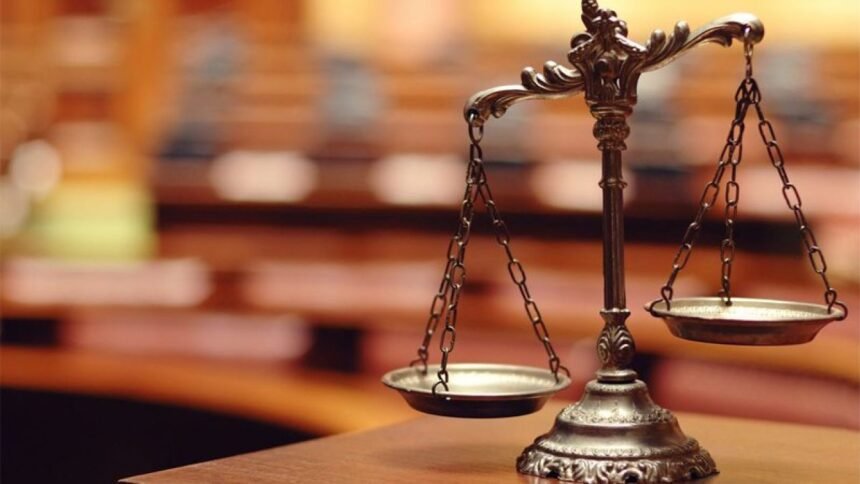Introduction
In the heart of every American lies a belief in legal justice—the idea that the law should protect, serve, and deliver fairness to all, regardless of background or circumstance. Yet, as headlines flash with stories of wrongful convictions, systemic biases, and unequal access to representation, many question whether the system lives up to this ideal. For Americans, legal justice is not just a concept but a lived experience, shaped by courtrooms, policies, and personal stories. This blog dives into the complexities of legal justice in the U.S., exploring its triumphs, challenges, and the path forward, with insights from experts and voices on platforms like Reddit, where everyday citizens share their encounters with the system.
Understanding Legal Justice
Legal justice refers to the fair and impartial application of the law, ensuring that every individual receives equal treatment under it. It encompasses everything from due process in courtrooms to the enforcement of rights and the punishment of wrongs. In the American context, legal justice is rooted in the Constitution, which promises protections like the right to a fair trial and equal protection under the law. However, achieving this ideal is far from straightforward.
On Reddit’s r/legaladvice, users frequently discuss their struggles navigating the legal system, from understanding their rights to affording a lawyer. One user shared, “I thought justice was automatic, but without money or knowledge, it’s like you’re fighting an uphill battle.” This sentiment highlights a core tension: while legal justice is a cornerstone of democracy, its accessibility often depends on resources, education, and systemic factors.
Pillars of a Just System
A just legal system rests on several pillars: fairness, accessibility, accountability, and transparency. Fairness means that laws are applied without bias, whether based on race, class, or gender. Accessibility ensures that everyone, from the wealthiest CEO to the most marginalized citizen, can seek redress. Accountability holds legal actors—like judges, lawyers, and police—responsible for upholding justice. Transparency allows the public to trust that the system operates openly and honestly.
However, these pillars are not always stable. For instance, disparities in sentencing or access to quality legal representation can undermine fairness. As we explore these challenges, it becomes clear that legal justice is both an aspiration and a work in progress.
Challenges to Achieving Legal Justice
One of the most significant barriers to legal justice in America is systemic bias. Studies, such as those from the Sentencing Project, show that Black and Hispanic defendants often receive harsher sentences than their white counterparts for similar crimes. This disparity isn’t just a statistic—it’s a lived reality for many. On Reddit’s r/BlackLivesMatter, users share stories of loved ones caught in cycles of over-policing and unfair treatment, with one writing, “My brother got five years for something a white kid got probation for. Where’s the justice in that?”
These inequities stem from a complex web of factors, including implicit bias, socioeconomic disparities, and historical injustices. For example, redlining and discriminatory policies have concentrated poverty in certain communities, leading to higher policing and incarceration rates. Addressing these issues requires not just legal reform but a broader reckoning with societal inequalities.
Limited Access to Legal Representation
Another hurdle is access to quality legal representation. The Sixth Amendment guarantees the right to counsel, but public defenders are often overworked and underfunded. According to the American Bar Association, public defender caseloads can exceed 300 cases per attorney, far beyond what’s manageable. This leaves many defendants with inadequate representation, undermining their chance at a fair trial.
Reddit’s r/legal often features posts from users desperate for affordable legal help. One user recounted, “I couldn’t afford a private attorney, and my public defender met me for 10 minutes before my hearing. I felt like I was on my own.” This gap in representation disproportionately affects low-income Americans, making legal justice feel like a privilege rather than a right.
Wrongful Convictions and Lack of Accountability
Wrongful convictions are a stark reminder of the system’s fallibility. The Innocence Project reports that over 3,400 people have been exonerated in the U.S. since 1989, often after decades in prison. These cases expose flaws like unreliable eyewitness testimony, prosecutorial misconduct, and inadequate forensic science. On r/TrueCrime, users passionately discuss cases like that of Anthony Ray Hinton, who spent 30 years on death row for a crime he didn’t commit.
Holding the system accountable for such errors is challenging. Prosecutors and police often enjoy immunity, and victims of wrongful convictions rarely receive adequate compensation. As Bryan Stevenson, founder of the Equal Justice Initiative, notes, “The opposite of poverty is not wealth; the opposite of poverty is justice.” His words underscore the need for reforms that prioritize accountability and restitution.
Pathways to a Fairer Legal Justice System
To advance legal justice, improving access to legal representation is critical. Increasing funding for public defender offices and expanding pro bono services can help level the playing field. Some states, like New York, have implemented reforms to cap public defender caseloads, ensuring attorneys have time to prepare robust defenses. Additionally, technology is playing a role, with platforms like LegalZoom and Avvo offering affordable legal resources.
Reddit users in r/povertyfinance often praise free legal clinics and nonprofit organizations like the Legal Aid Society. One user shared, “A legal aid lawyer helped me fight an eviction I couldn’t afford to challenge alone. It was a lifeline.” Scaling these initiatives nationwide could make legal justice more attainable for all Americans.
Addressing Bias Through Policy and Training
Tackling systemic bias requires bold policy changes and cultural shifts. Sentencing guidelines should be reformed to eliminate disparities, and mandatory bias training for judges, prosecutors, and police can help address unconscious prejudices. Some jurisdictions are also exploring alternatives to incarceration, like restorative justice programs, which focus on rehabilitation rather than punishment.
On r/politics, users debate the merits of policies like ending cash bail, which disproportionately harms low-income defendants. One commenter noted, “Cash bail keeps people in jail just because they’re poor, not because they’re guilty. It’s the opposite of justice.” Reforms like these, already underway in places like California, could reshape the system to prioritize fairness.
Leveraging Technology for Transparency
Technology offers new tools to enhance transparency and accountability. Body cameras for police, open-access court records, and AI-driven case management systems can make the legal process more transparent. For example, predictive policing algorithms, when used ethically, can reduce bias in law enforcement by relying on data rather than human judgment.
However, technology isn’t a panacea. Reddit’s r/technology warns of risks like algorithmic bias or privacy violations. Balancing innovation with ethical oversight will be key to ensuring that tech serves the cause of legal justice rather than complicating it.
The Power of Public Awareness
Raising public awareness is crucial for driving change. Media, advocacy groups, and grassroots movements play a vital role in highlighting injustices and amplifying marginalized voices. Documentaries like 13th and podcasts like Serial have sparked national conversations about issues like mass incarceration and wrongful convictions.
On Reddit, communities like r/socialjustice encourage users to get involved, whether by attending protests, contacting lawmakers, or supporting organizations like the ACLU. One user wrote, “I started volunteering with a local bail fund after reading about it here. It’s small, but it feels like I’m part of the solution.” This groundswell of engagement shows that everyday Americans can shape the future of legal justice.
The Future of Legal Justice
As America grapples with its legal challenges, the pursuit of legal justice remains a dynamic journey. Emerging trends, like the decriminalization of nonviolent offenses and the expansion of diversion programs, suggest a shift toward a more equitable system. However, lasting change will require sustained effort from policymakers, advocates, and citizens alike.
Looking forward, the integration of restorative justice principles could redefine what justice means, emphasizing healing over punishment. By learning from past mistakes and embracing innovative solutions, America can move closer to a system that truly serves all its people.
Conclusion
Legal justice is the bedrock of a fair society, yet its promise often falls short for those who need it most. From systemic biases to inadequate representation, the challenges are daunting but not insurmountable. By strengthening legal aid, addressing bias, leveraging technology, and raising public awareness, Americans can rebuild a system that reflects their highest ideals. As we reflect on the stories shared on Reddit and the insights of experts like Bryan Stevenson, one truth stands out: legal justice is not a destination but a collective effort. What step will you take to support this cause? Whether it’s advocating for reform or simply learning more, every action counts in the pursuit of a more just America.






